All are invited to attend a free lunch seminar at UMBC on personal money management, developing budgets, and reducing debt on Wednesday, October 2, 2013, 1:00 PM, in Room 329 of the Commons. Our guests will be Kevin Harris, MBA, CEO of Bedrock Assets in Chicago, and Sonya Caesar, Director of Money Matter$.
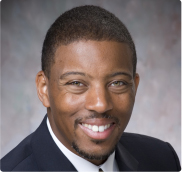 Kevin Harris is a businessman and leader who has traveled to 22 countries on 5 continents; he has observed and applied leadership principles across uniquely different cultures and demographics. Kevin is the CEO of Bedrock Assets, and is also the general manager for BP’s 1.2 million sq. ft. property portfolio in the Chicago Area. He leads a team of 250 people to deliver safe, reliable and cost efficient operations across a diverse portfolio of pilot plant, commercial office and trading floor operations. His organization also provides design, construction, safety, medical and other business services to nearly 3000 employees in Chicago and the western suburbs. Kevin has domestic and international business leadership and operations experience in the U.S., Japan, China, Africa, S. America and various parts of Europe. His previous leadership experience includes serving as Vice President of strategy, planning and performance for a $15 billion BP fuels business, General Manager for a $100 million international BP chemical business in addition to other sales, engineering and operational roles. Harris will discuss: Budgeting, saving, debt, spending patterns & “Future Financial Decisions – How Budgeting Now Can Lead to Financial Savings Later.”
Kevin Harris is a businessman and leader who has traveled to 22 countries on 5 continents; he has observed and applied leadership principles across uniquely different cultures and demographics. Kevin is the CEO of Bedrock Assets, and is also the general manager for BP’s 1.2 million sq. ft. property portfolio in the Chicago Area. He leads a team of 250 people to deliver safe, reliable and cost efficient operations across a diverse portfolio of pilot plant, commercial office and trading floor operations. His organization also provides design, construction, safety, medical and other business services to nearly 3000 employees in Chicago and the western suburbs. Kevin has domestic and international business leadership and operations experience in the U.S., Japan, China, Africa, S. America and various parts of Europe. His previous leadership experience includes serving as Vice President of strategy, planning and performance for a $15 billion BP fuels business, General Manager for a $100 million international BP chemical business in addition to other sales, engineering and operational roles. Harris will discuss: Budgeting, saving, debt, spending patterns & “Future Financial Decisions – How Budgeting Now Can Lead to Financial Savings Later.”
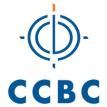 Sonya Caesar, Director of the “Money Matter$” program at CCBC, interviewee on PBS’ Nightly News regarding financial management, and UMBC Alum, will work with participants on their personal budgets. She coordinates Developmental Education on the Essex Campus of CCBC, and is one of the leaders for the community-based Financial Literacy initiative in the Baltimore region. Caesar will discuss student debt, managing both a personal budget and student loans.
Sonya Caesar, Director of the “Money Matter$” program at CCBC, interviewee on PBS’ Nightly News regarding financial management, and UMBC Alum, will work with participants on their personal budgets. She coordinates Developmental Education on the Essex Campus of CCBC, and is one of the leaders for the community-based Financial Literacy initiative in the Baltimore region. Caesar will discuss student debt, managing both a personal budget and student loans.
—————-
AGENDA
- 12:45 – Participants arrive, get lunch
- 1:00 – Welcome & Overview of Financial Literacy Series
- 1:05 – Overview of the importance of budgeting – Sonya Caesar, Director of Money Matter$
- 1:10 – “Keynote” Budgeting, Saving, Debt, Spending Patterns” & “Future Financial Decisions – How Budgeting Now Can Lead to Financial Savings Later” – Kevin Harris, MBA, CEO of Bedrock Assets
- 1:35 – “Creating a Budget Worksheet” & Report out – Sonya Caesar.
- 1:50 – Q & A
- 2:00 – End formal session
- 2:00 – 2:30 – Informal Q& A and Individual consultations with the speakers.
This seminar is co-sponsored by The Council of Graduate Schools (CGS) TIAA CREF Financial Literacy grant and The Graduate School at UMBC. Kevin Harris appears courtesy of co-sponsorship by Bedrock Assets. For more about Bedrock Assets, visit their website: http://www.bedrockassets.com.
The University of Maryland, Baltimore County (UMBC) has been selected to participate in an “Enhancing Student Financial Education” project for 2013-2015. Chosen as one of 15 awardees in a national competition, UMBC received a grant from the Council of Graduate Schools (CGS), a non-profit organization (www.cgsnet.org) dedicated to advancing graduate education and research. Funded by a grant from TIAA-CREF, a leading financial services organization, CGS will develop models for providing financial education resources that help undergraduate and graduate students manage their money and hone their financial and debt management skills.
Go LIVE! Seminars: UMBC will develop “Go Live” seminars that will showcase financial literacy resources on a new, interactive website. The online topics and segments will be coupled with “live” seminars that will be held throughout the year. Seminar topics include: Graduate Funding, Improving Credit Ratings, Financial Transitions, Life-long, Financial Planning, Budgets, and more.
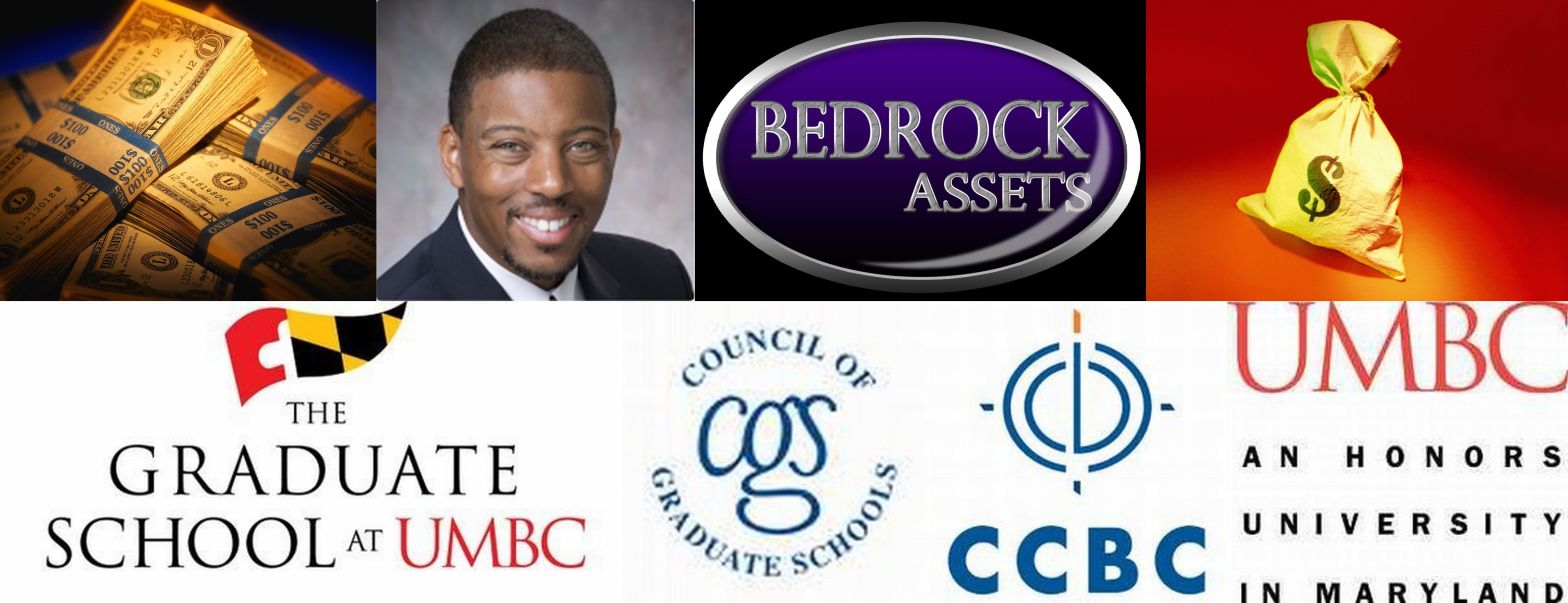


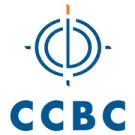
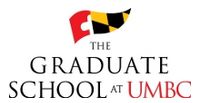
Follow-up from KEVIN HARRIS:
A) Develop a long term financial vision for your life to support the lifestyle you want to lead. Items in the vision may include home ownership, providing an inheritance to future generations, philanthropy, financial independence and early retirement.
B) Pursue three lines of action to achieve your financial vision:
1) Create a budget and follow it with discipline
2) Save your money. I recommend trying to save 10% of your income and begin developing an emergency fund. You should save 4-6 months worth of expenses for this emergency fund and set it aside for the unexpected events of life. As you save, follow your budget and save both large and small sums of money every week and make it habitual.
3) Invest and put your money to work. Take advantage of compounding interest by investing early within the limits of your risk profile. You can invest in the stock market, property, life insurance and even art.
Recommended Reading (provided in the handout):
—————————————————————–
Money Matters: Answers to Your Financial Questions by Larry Burkett
The Wealthy Barber by David Chilton
The Millionaire Next Door by Thomas J. Stanley and William D. Danko
Beating the Street by Peter Lynch
LikeLike
I really enjoyed spending time with the UMBC graduate students defining and outlining their financial visions. The students asked great questions and I appreciated the conversation. I wish you well as you pursue your dreams and I look forward to future collaborations with Dr Renetta Tull and Sonya Ceasar. See my website for more information: http://www.bedrockassets.com
LikeLike
Coming into this seminar, my knowledge about personal finances was very limited. I do spend my money very responsibly and save whenever I can, but I didn’t know much about long-term strategies to expand one’s wealth. Mr. Harris’ advice about investment was really enlightening to me, especially since I knew virtually nothing about how it’s done, or even the small vocabulary that is involved with investing. His tip of saving money every week, even if it’s only $5, is something I will be putting into practice as well. In conclusion, this was a great seminar, especially for a rookie in finances, such as myself.
LikeLike
Many of the ideas discussed at this seminar were things i already implement in my life. For example having an emergency fund, creating a budget and doing certain things like making lunch to save money. My biggest take a way from the seminar was the information provided about investing. I’m in the process of saving enough money so that I can invest, so it was helpful to hear about the different ways to invest.
LikeLike
This seminar has helped me to reorganize my budget into firm and flexible expenses. I have also examined my financial habits and am going to utilize the steps that Mr. Harris laid out for creating a responsible future. (Create a budget, save, invest). I want to thank Sonya Caesar and Kevin Harris for providing this seminar, and look forward to pursuing investment strategies in the future.
LikeLike
I am glad that I attended this seminar. I benefited the most from learning about the various ways one can invest their money.
– “Micro-budgeting” is a term that stuck with me the most. Many of the time, I cannot save hundreds of dollars from my pay checks but I learned that you should not let that stop you from saving what you can even if its $5. You do not realize how saving small amounts of money at a time eventually becomes a large sum of money.
– Also, how keeping your financial goals at your forefront helps you stick to the budget you created for yourself.
LikeLike
From attending this event, one of the biggest things that I learned from this event was the importance of having a financial vision. Up until this point, I had goals set for myself but never really realized that they were my financial vision. I also have a better understanding of the things that should be done in order for me to realize my financial vision. Budget, save, and invest. I have always kept a mental budget but I found the “Monthly Income and Expenses” worksheet to be extremely useful because there are monthly expenses that I tend to overlook. I also feel that I do a pretty good job of saving money but I have never had any idea of how much I should be saving in case of emergency. This seminar taught me that I should be saving 4-6 months of my income as an emergency fund and that is my new goal. The information on various investment accounts and their varying costs of entry was also particularly interesting because I had no prior knowledge of how to go about investing investing in the stock market at all.
LikeLike
Before going to this seminar, I would stop by Dunkin Donuts in the morning and then buy my lunch every day of the week. I didn’t really pay attention to how much I was spending every month. Now I’m making my coffee and lunch every morning. From this seminar, I have learned about micromanaging and that saving starts out at a low level. I never really saved money because all was going towards school. Now I learned anyone can start by budgeting and just making your coffee and lunch in the morning. Also, once you budget, savings will follow and then soon you are ready to invest. I left the seminar with a life lesson that I will never forget. Thank you.
LikeLike
Many of the ideas in presented in this seminar changed my personal outlook on my finances. I now realize that investing is not only a realistic option for increasing my personal wealth, but one that I can and should pursue within my own personal limits.
Although I already carefully watch my spending, based on this seminar, I now realize the importance of not just squirreling away money haphazardly, but having a concrete written budget that one adheres to. I plan to sit down and write one up formally, but now I will also make sure to include categories for investment possibilities as well.
However, what stuck with me the most from the seminar was the idea of saving up enough to cover a couple of months worth of expenses. It really put into perspective for me exactly what my savings goal should be, and now I can start thinking more seriously about how to get to this number.
LikeLike
The financial literacy seminar truly opened my eyes to my spending habits and gave me tools to better manage my finances. Filling out the expenses versus income table allowed me to see what my income truly was and what I needed to eliminate in order to save money. Mr. Harris’ and Ms. Caesar’s advice on investing your money wisely helped me to start researching ways to invest my money in the future. I am very glad I attended this seminar. What really resonated with me was the importance of saving your income to cover four to six months of your expenses. I realized I could do much better in this aspect.
Since the seminar, I have applied many of the tools and resources given during the seminar. I have been tracking my spending, keeping a detailed log of my expenses, categorizing what I want versus what I need, and adjusting my budget to prepare for unexpected situations.
LikeLike
This seminar helped to remind me of how important it is to budget and plan for unexpected situations that may arise throughout the year, especially as a student. The advice given by the speakers about investing was especially helpful for me because I had never given much thought to the idea of investing my money as a student.
LikeLike
This talk started by introducing Financial Smarts @ UMBC. A upcoming website that will provide students with tools and resources to make smart decisions on financial issues. The speaker suggested keeping family and friends involved with your finances. Using cash instead of electronic forms of payments while out and about is a good tip as well. This forces you to actually acknowledge how much you will spend before you do it. Spending everything on a card is a way to overspend.
Students sometimes suffer from “psychological egoism” which fuels self centered overspending. Having a savings account is a good idea as well. Putting away $50 for every $200 you recvice is a good rule of thumb. Students should diligent about finding students discounts when and wherever they are offered. Often times the discounts are not broadcasted so you have to look and ask. Finally the speaker mentioned a few tools for savings. One of them was mint app. Its an app that lets you track, budget and manage finances all from your mobile device or computer. The app lets you see where you do your spending and gives clues as to where savings could be made.
Kayla Lemons – Department of Biological Sciences
LikeLike